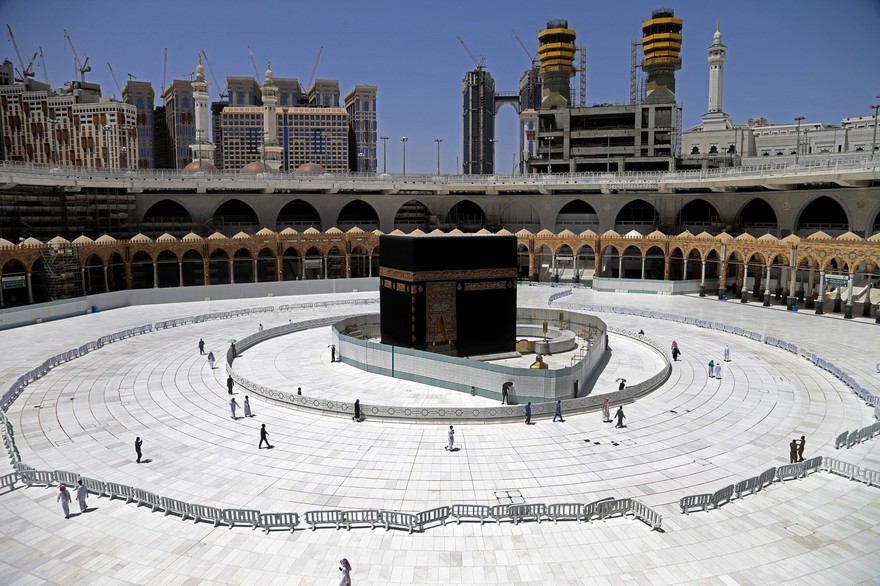Society
8.4.2020
Pilgrims in self-quarantine after Hajj

As part of the fight against the spread of Covid-19, the pilgrims of the Hajj 2020 will have to observe a quarantine period of 14 days. Their self-isolation will be controlled by the Saudi authorities through electronic bracelets.
The Hajj ended this Sunday after a pilgrimage under the sign of social distancing due to the Covid-19 pandemic. A strict health protocol and a particularly limited attendance – confined to Muslims residing in Saudi Arabia – accompanied this 2020 edition.
An electronic bracelet to verify self-isolation
Health instructions do not stop at Mecca or the pilgrimage situation. Indeed, the pilgrims who participated in this year’s Hajj must now comply with a 14-day quarantine – monitored by the Saudi authorities – once they return home.
Already, before taking part in the Hajj, pilgrims were required to self-quarantine and wore electronic bracelets for this purpose, allowing the authorities to ensure that they complied with the self-isolation rules. Developed as part of the fight against the spread of the coronavirus, these bracelets are accompanied by an application, “Tatamman” – (“Be reassured”, in Arabic) designed to monitor and record the state of health of their wearers . The device will therefore have to be worn for about fourteen days after the pilgrimage
Decreasing contamination
The country has again recorded a drop in Covid-19 cases on its territory. The contaminations recorded remained below the 2,000 mark for the 10th consecutive day. The kingdom reported 1,258 new cases on Monday, bringing the number of people infected to 280,093 so far.
The kingdom currently has 35,091 active cases and a total of 2,949 deaths. More than 40,000 polymerase (PCR) tests are performed there daily and nearly 3.5 million PCR tests have been performed there to date.
popular

